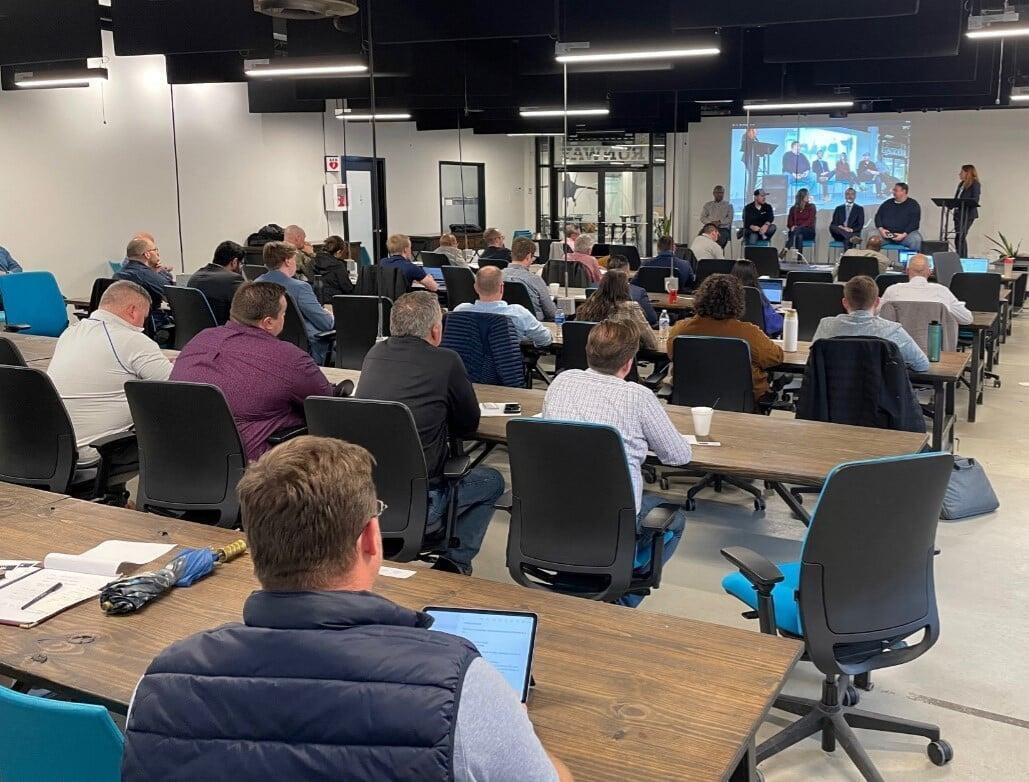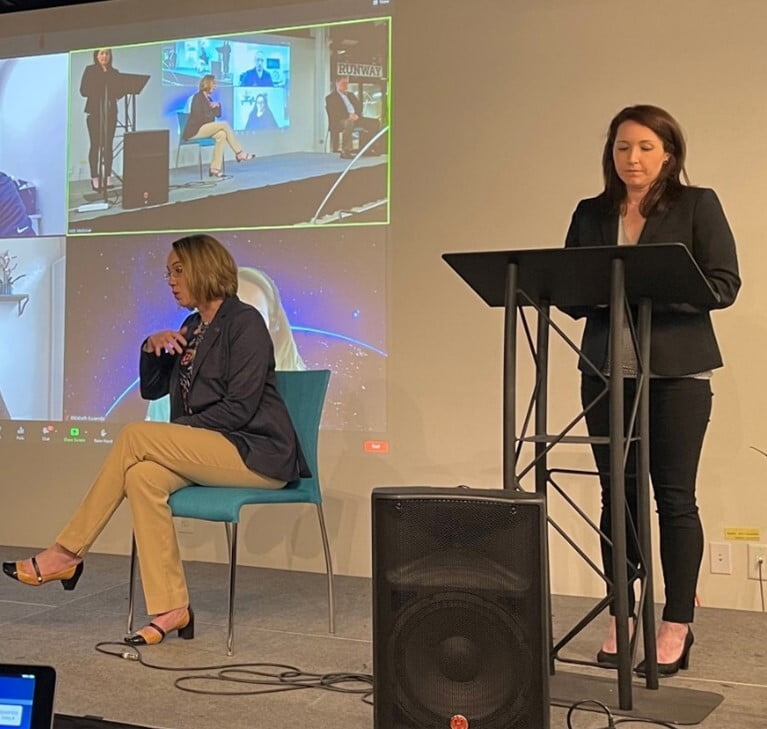WBI Collider Gives Small Businesses Inside Info on T2/T3 Processes
07.03.23 05:00 PM By Jennie Hempstead

By: Laura Dempsey
On a rainy Thursday in February, an interest in working with the government brought 55 people to Wright Brothers Institute’s downtown Dayton facility, all eager to learn the open secrets of the world of defense contracting. An additional 111 people took the remote route, taking advantage of the virtual option that’s become a part of doing business today.
The event, “Technology Transfer & Transition (T2/T3): Working with the Air Force Research Laboratory,” brought experts from both inside and outside “the fence” – a colloquial term that differentiates government workers from civilians. A panel discussion featured Tech Transfer professionals, including Liz Escamilla, who leads the AFWERX TechConnect program, and Jeremy Gratsch, who heads the Office of Technology Transfer and Partnerships at the Air Force Research Laboratory. They know the system, and their perspective was invaluable to the audience, made up largely of small business representatives eager to learn the government contracting ropes.

Chastity Whitaker, deputy of the Intellectual Property Law Division at the Air Force Materiel Command, stressed that the government strives to help small businesses compete.
“You’re getting the same terms and conditions as Lockheed and other big companies,” she said. “That helps us maintain a level playing field.”
Jeremy Gratsch made the point that it’s part of the government’s mission to encourage small businesses to partner with AFRL. “We’re constantly trying to break down barriers,” he said.
The Collider’s second half featured a panel comprising people whose small businesses had successfully navigated the contracting process. Their insight provided real-life scenarios that will undoubtedly prove valuable to those planning to navigate the same course.
